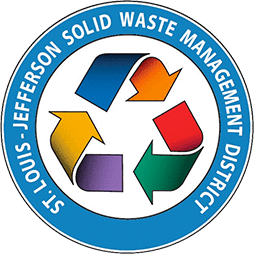Missed Part 1 of Beyond the 3 R’s? You can find it here!

We are very familiar with the 3 R’s: Reduce, Reuse and Recycle. But let’s take it a step further! Did you know there are more than just 3 R’s you can practice everyday? Get your creative thinking hat on and let’s see what other everyday sustainable practices you can implement! You might practice these more than you think…
To begin, many of these practices are not solely in one category or another, but rather they overlap with their closest pyramid partner. Rarely are you just practicing one of these R’s alone. Usually, if you are doing one of these R’s, you are, in fact, doing several R’s at the same time because they are interconnected practices.
Refill or Return
Refill
You may have seen some grocery stores adding sections typically called, “Bulk,” that allow you to buy as little or much as you’d like. These are typically dry food goods, like rice, beans, flour, and some have sections of liquids, such as oil, honey, vinegar and more. When you buy items in the bulk section, they are often more cost effective overall. Products outside of the bulk section have their packaging cost included in their price. Continuing to make new bottles, cartons, containers and boxes for packaging keep the prices up.

In the bulk section, you may see plastic bags sprinkled throughout the aisles for your items. But, can you take it a step further to practice what you learned from the “Rethink” and “Reduce” sections? Ditch the plastic bag and bring in your own container or jar to use! You don’t need a container that is fancy or store branded. Most of these containers can be found from food packaging you are already purchasing. An empty pasta sauce jar will be your new best friend! When you bring your own containers for purchasing bulk items, you save money by eliminating the packaging cost of your items. In our St. Louis area, Local Harvest, Fields Foods, Whole Foods, Lucky’s Market and Fresh Thyme have bulk food sections so you can bring in your own container to fill up.
Return
Returning your bottles and containers ensures they will be used again and are also very valuable for the manufacturer, too. Sometimes consumers pay upfront for the packaging and can get a return deposit when the container is brought back in. In Missouri, we do not have a bottle return deposit center where you can return bottles and get money back. However, there are businesses that do appreciate their bottles or containers returned so they can sanitize and refill them.
Many local companies really value your containers being returned to them so they can sanitize and reuse. This is very cost effective for local companies because packaging can be expensive for them upfront. Oberweis is a milk company that sells in larger grocery stores that accepts their glass bottles back and usually the deposit back range from $1 to $2.
Sometimes, there is not a return deposit provided, but your bottles and containers are still welcomed. Many farmers who sell chicken eggs rely on customers bringing back their egg cartons. At Kirkwood’s farmers market, The Refill Effect has set up shop for customers to refill containers of goods.
Rehome or Regift
Rehome
Donating your unwanted items is a great way to give items a new life and help provide things to someone in need at a lower price. If you are in a season of transition, consider shopping second-hand before buying new. There are an abundance of local organizations that have community driven missions, so when purchasing second-hand items from them you are supporting their programs and giving back to the community.
Regift

Regifting is an easy way to avoid waste and save money! Friends and family mean well when they give you another cat shirt for your birthday or the holidays. Create a tote box of gifts that you no longer need or want. When a special occasion comes around, check your tote box of items that could be regifted first before considering purchasing something new.
The minimalist movement and the KonMari method, founded by Marie Kondo, has helped many people to declutter and reorient their living space to feel purposeful and evaluate if their items “spark joy!” or not. How many items do you have lying around that truly spark joy in you?
Recycle
If you haven’t been familiar with any of the other terms, this one you should know about! Usually, people are first introduced to the word recycle before they hear about any of these other ‘R’ words. It is valuable to perform all of these sustainable practices, not just recycling, because there are lots of other options to consider before sending something away to the landfill.
Recycling has value and is necessary for materials to continue to be made. Glass and metal are endlessly recyclable materials which means they can be turned into another glass bottle or metal can forever (as long as they are recycled and not sent to the landfill). Glass and metals chemical properties do not breakdown or lose value, like paper and plastic do, when they are recycled continuously. Furthermore, they are made from finite natural resources that are depleting so it’s important to make sure glass and metal are recycled responsibly.
As paper is recycled multiple times, the fibers are shortened meaning they cannot be made into what they once were. Short paper fibers usually become toilet paper or paper towels. Plastic cannot be made into the same material it was originally created and must be downgraded. A plastic bottle could become carpet or insulation in a jacket because the quality and strength is lowered.
It is crucial to only recycle the materials that are accepted in your area. Incorrect materials in the recycling bin result in contamination which can ruin other valuable recyclables. In the St. Louis metro area we all Recycle Responsibly.

Replant or Rot

Replant
Food scraps are often overlooked as valuable organic material. When they sit in a landfill they emit tons of methane gas, a very powerful greenhouse gas. There are services that collect food scraps, such as Perennial City and ShareWaste app. For more information, visit our blog post about why to compost.
Rot
Before you pitch your food scraps in the compost bin, did you know that some food can be regrown from scraps? Lettuce, celery, potatoes, onions, garlic, basil and more! Usually only water is needed to start. You don’t need to have a green thumb to get these going!
Recruit
Now that you have read this and thought of some ways to implement these practices into everyday life, it’s time to find someone else who will join you! It is always more fun with friends and family and to learn from one another.

In fact, sign up to become a Recycling Ambassador with us so you can share with others how to Rethink/Refuse, Reduce/Rent, Repair/Reuse, Refill/Return, Rehome/Regift, Recycle, Replant/Rot and Recruit!
We wish we could take credit for this 8th “R” word, “Recruit”, but we didn’t come up with it.
Sources
The 7 R’s to Zero Waste: How to Live Without Excess
Practicing the ‘7 R’s’ lifestyle
The Seven Rs of Responsible Recycling









2 Comments
I need a place to recycle plant trays.
Hi Barb, unfortunately there is not currently a place that is accepting plant trays for recycling this summer. If you don’t have room to hold onto them until fall, or sometime next year, please place the trays in the trash. Plant trays are not recyclable in our Blue Bins. Thanks for recycling responsibly!
1 Trackback